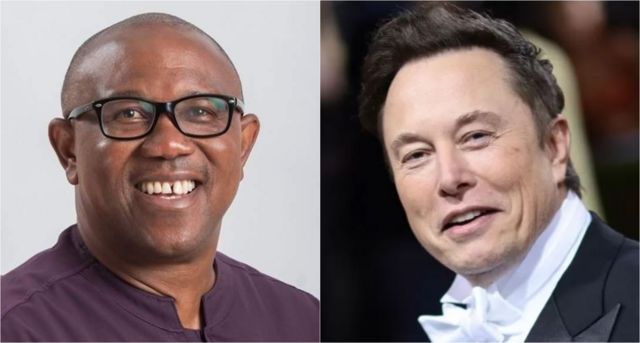Followers of Labour Party’s flagbearer Peter Obi recently took to social media to spread and celebrate his purported endorsement by billionaire American businessman and innovator, Elon Musk. The endorsement, according to the ‘Obidients’, was captured in a video where the American expressed admiration for their candidate, a purported validation Obidients held as further proof of his global popularity. Except that it wasn’t.
An examination of the video in which Elon Musk purportedly spoke glowingly of Peter Obi during an interview revealed it to be fake and untrue. The video was created through what is widely known as ‘deep fake’, a technology involving the use of artificial intelligence called deep learning to make images of fake events, oftentimes by super-imposing audio on the recording of a character in which they are falsely depicted as making a comment.
The usage of the technology by the Obidients to mislead Nigerians into believing their candidate received such an unlikely endorsement, and the viralilty the fake video has gained since its release and coordinated amplification by the Obi campaign structure, has affirmed previously expressed fears on the potential of the deep fake technology being utilized by malicious actors to manipulate and mislead the public.
It also raises more questions and alarm on the dangerous embrace of disinformation by the Labour Party’s candidate to increase the appeal of his candidature, after struggling to win new converts in key regions of the country. Peter Obi has been the subject of several FACT CHECK exercises that flagged many of his claims – including data and statistics on the economy – as false and inconsistent.
Prominent figures of his loose campaign structure – due primarily to unabating infighting within the Labour party preventing the formation of a serious campaign organization, similar to the two major political parties with far greater spread – have also been complicit in the uncritical spread of false reports intended to misattribute false achievements to the candidate or spread fake reports of non-existent deficiencies about his opponents.
The Elon Musk video in question, which is now making the rounds on Whatsapp and other video-enabled internet platforms as orchestrated by the Obi campaign, was in fact from a 2016 interview granted to Sam Altman of Y Combinator. Nowhere was either the Nigerian election or Peter Obi discussed in the real interview. It is also doubtful that Elon Musk knows enough about Peter Obi to endorse him for public office, let alone the presidency.
Obi’s dangerous reliance on Fake News, some of which have real consequences for Nigeria’s unity and wellbeing during and after the election, has added more voices to the call for stricter information regulation, especially during electioneering as more citizens fear that a fringe, sectional candidate like Obi seeks to elevate himself to the presidency by ginning up the people with a cocktail of deliberate disinformation comprising of half-truths and outright lies.

